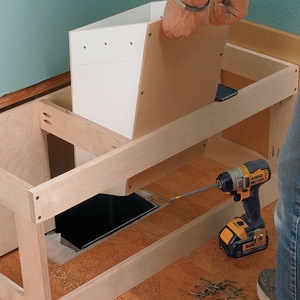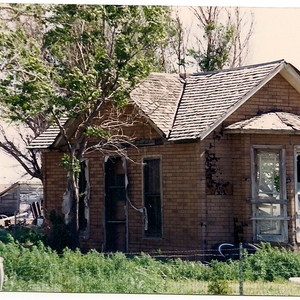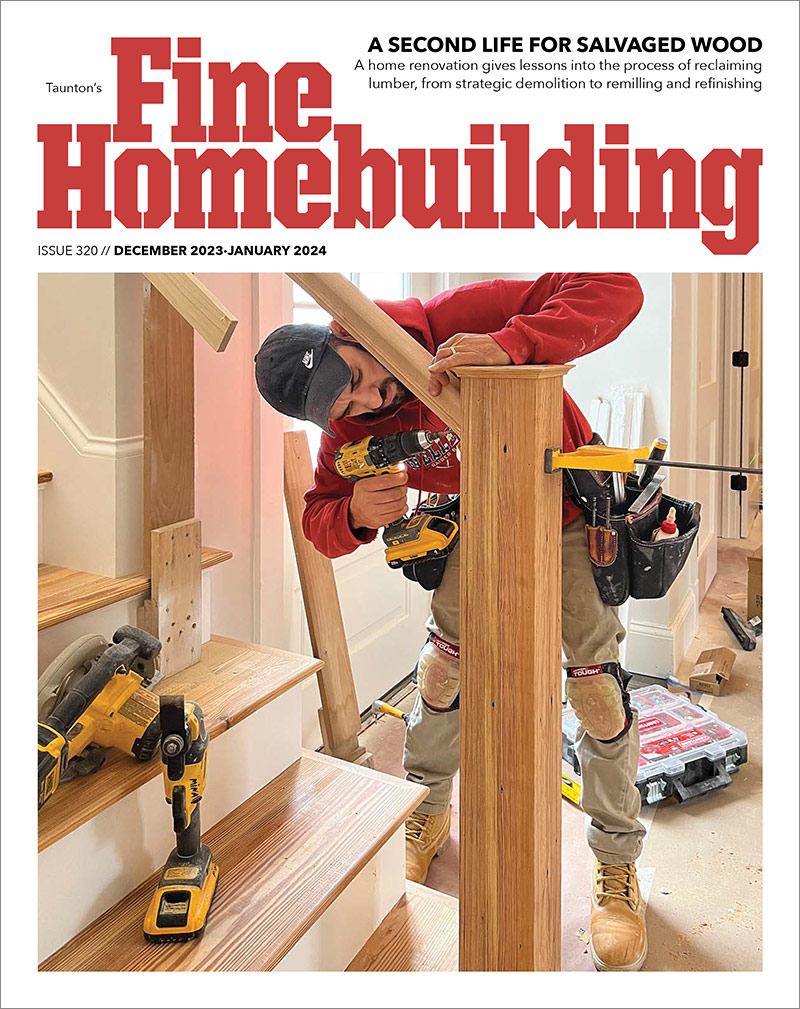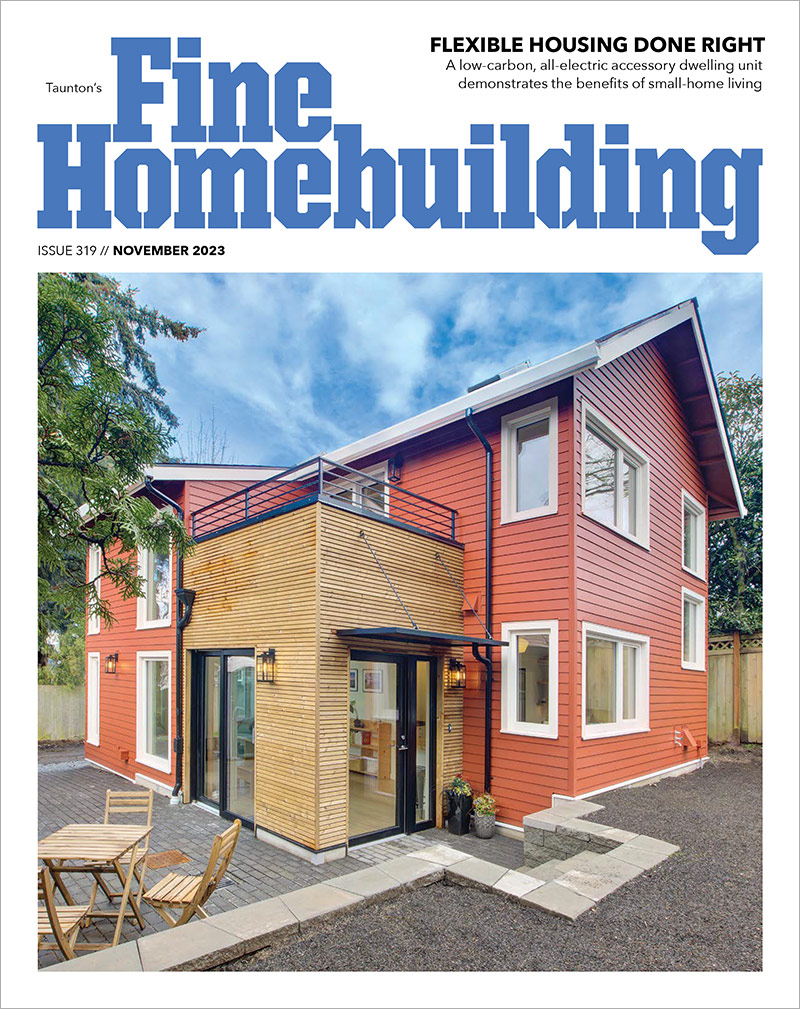*
When qualifying a client who must sell their home to raise the funds to build, does anyone out there in cyberland appraise their current home’s saleability and asking price? I have noticed some fuzzy math by homeowners. It goes something like this:
Sixties ranch with original kitchen/baths with view of new K-Mart EQUALS New, larger home with waterview Minus Equity in lot.
Most Realtors will list a house at any price. Owners use the formula above even when the MLS listing page makes you want to sing “One of these things is not like the other one, One of these things just doesn’t belong”. (My apologies to all the characters at Sesame Street)
Meanwhile there is a builder somewhere counting unhatched eggs.
Comments?
Thomas


















Replies
*
Show-me the money first.........in a case like this, call me when you got a contract to sell, in the meanwhile, if they wish to plan away, a design/consulting fee is required.
*Thomas, the prudent thing to do would be to do a "pending sales" market analysis. Asking prices have no bearing on actual value.blue
*If I understand this you are considering building a home for someone who must sell their current home to pay you.Qualification for something like this is a piece of cake. Just have them get a line of credit from the bank. Then you draw against the line.That keeps you out of the banking business; you aren't a banker are you? That keeps you out of the real estate business; you aren't a realtor are you? Makes life simple and keeps you in the business you know, building things.
*FredB,Again, as in my post to RK regarding roof decks, this was a hypothetical situation created to re-start discussion on this board.I like your suggestion, reminds me of a old builder/architect I worked for. He made me write "I am not a bank" on the blackboard.Thomas
*Fred, your obvious solution sounds great. Now, lets complicate the question. Let's suppose the buyer can't qualify for a line of credit, but will qualify after their present house is sold?Do you ditch the sale, or find a way to work with them?blue
*Oh...so this is just hypothetical? OK, I can play with that.What do you do if the person will qualify sometime in the future but not now?The problem is that until the old house is sold you don't know exactly what the financial situation is. So, you can't accurately say that they will qualify then. In any case unless you have the same ability to check things out and make decisions as the bank you are doing a lot of guesswork that could hurt your wallet.Plus, your desire to do business with this person will cause you to shade decisions in favor of making the deal go. Instead, the dollar decisions need to be made with a cold eye on the facts.Nope, unless you are also a banker this is one part of a deal that is non-negotiable. Sure some guys work out "creative" financing and get away with it. But they I suspect are in the smallest minority.
*hypothetically speaking of course, wouldn't it make sense to work with the client (if desired) with the things they want done now? i.e. site analysis, design, code/planning/regulatory review, prelim. budget analysis... these items may add up to a feasibility study to for them to see what they actually will be able to do in the future. this also assumes that the client is paying for the above mentioned services. they would have to pay for services whether or not they have the money for the building stage (right sonny et al?). time=money...an opportunity to develop an honest working relationship with a client. both parties can see whether they want to embark on the big, messy building process with the other.also, by going through all of the preliminary issues, the clients will be much better educated/informed by the time their house sells and they are ready to build.
*Fred is absolutely right. More than becoming a banker, you become the customer's partner. Your fortunes are tied directly to his, except that you've laid out all the expenses and labor and he's out nothing until the end. If any assumption proves incorrect, whether old house market value or time for sale, or housing market, you lose. The point isn't to be able to sue the guy at the end, but to earn your keep without hassle.Unless you are willing to take the risk of working for nothing and taking the hit, don't build for anyone who can't afford to pay you. If the guy's got his old house and is sitting on a pile of money as well, paying up front for land and expenses, that's another story.
*Fred, I understand your fears, but you and ShG are overlooking some solutions.You worry i "The problem is that until the old house is sold you don't know exactly what the financial situation is." and I disagree to a point. The purpose of a market analysis, using pending sales (pending sales are the most recent and reflect realtime value) will give you a fairly accurate understanding of the buyers house value. A basic credit check will give you a good idea of the guys net worth. Yes there is still risk. Nothing ventured, nothing gained. If you want to further minimize the risk, you can get a signed purchase agreement that spells out the terms of the contingency sale. You can attach a mortgage on the existing house as a deposit. You can retain the ability to sell the "spec" house, giving the buyer first right of revision.If the sale doesn't ever go through you simply sell to someone else.Builders build spec houses all the time. This is just a different form of a spec house.blue
*Well I posted here yesterday and today it was gone. So, I may be spitting in the wind but will try again.Blue: If this were a spec house situation your idea would be in the ballpark. You could just build the generic house and if he is ready to buy when you are ready to sell great. If not you just sell to someone else. This assuming that there is a market for that kind of generic house in that market at that time.But I don't think that is what is being talked about here. This is a "custom" house, however you define that, being built for a specific customer. So, That customer needs to be able to pay.Most people in any kind of business really want to work with their customers. They get rewarded if they do. But, they need to keep a firm hold on what their business is. They also need to not expand into some other kind of business unless they know what they are doing. Its' all part of the risk-reward calculation.Here there is a great danger of expanding into the banking business when we really don't know much about it. Lots of risks and not very much reward.
*I saw your post yesterday Fred. The original poster wondered if it was a good idea to qualify a buyer. I think it is. I also understand that not every buyer will qualify for a second mortgage, and relies on the selling of their present home. If you refuse all these clients, you will eliminate a significant portion of your market. Accepting these clients is risky, but you can manage the risk. One way to manage the risk is to understand what the worst case scenario is. Another way is to explore the qualifications of the client. Doing a market analysis (at their expense) is just the start. A credit check (at their expense) is again warranted. Finally, it would be wise to refuse to build a "different" house on contingency. If the house they wants, fits into a broac category of houses that are readily marketable, the risk is low, because it simply would become a spec. If you can't afford to carry a spec, then that would present a further issue of worst case risk. Taking all these things into condideration is what a prudent business man does. It doesn' make them a "banker". Besides, what is wrong with becoming a bank? Don't all banks make decent money?blue
*Well there is nothing wrong with becoming a bank, if you are qualified and have the resources. Never said anything was wrong with that. BUT, I've never met a contractor who was able to do that.I don't think a person loses any customers by not being a bank. If a person needs to sell their current home to finance a new one it is up to the bank to make the financial decision. The contractor can and should cooperate with information to help the prospective customer satisfy the bank. But it is the bank that makes the final decision and that guarantees that money is available for the project. No bank guarantee, no project.
*Fred, most contractors don't understand that they can make substantially higher profits by "becoming the bank". Especially remodelers.In my earlier days, I tried remodeling. Of course, since I was a rookie, and stupid, I tended to sell on price. I probably passed up significant revenues by not understanding how to mark up and possible taking some of the profits on terms instead of cash. I think we all have run into someone that wanted more, but couldn't get the loan for it. Today, because I've learned so much more about real estate, I'd easily take a second or third mortgage on their house, while bumping my sales and profit margin. I'd take a mortgage on any other security that they own too. I'd get a handsome interest rate (check your state usury laws) and if I needed cash, I'd sell the note on the after market for as much as I could get. All of the big boys offer "in house" financing, which is usually nothing more than being a middle man for a bank or finance company. Every contractor that sells to the retail crowd should build a financing team, and be prepared to help their clients through the loan process.blue
*Blue you obviously have found something that fits your particular business model very well. Congratulations! But, and that is a big But, most folks can't mix different industries in their business. They have neither the education, experience or resources to be successful.Nor, do they have the ability to weather the increased exposure when things go south. I remember one guy who mixed it all, built an entire subdivision as the developer, banker, and contractor. Would have made a bundle, which he should have since he has assumed a lot of risk. Well, a local branch of a very large internatinal company decided to cut back. The subdivision sat empty for several years and he went off to parts unknown.
*Fred, it sounds like the guy went out on a limb, without adequate reserves. Even if the guy went bankrupt, he still is better off becasue at least he tried. He'll be much wiser on his next attempt.I used to fear bankruptcy. I don't even give it another thought now. They say that if a millionaire loses everything, he'll find a way to get his millions back right away. If he figured out how to make his first million, the second million will be easy.Millionaires don't get their millions running from loans and risk. They look at and understand both. blue
*
When qualifying a client who must sell their home to raise the funds to build, does anyone out there in cyberland appraise their current home's saleability and asking price? I have noticed some fuzzy math by homeowners. It goes something like this:
Sixties ranch with original kitchen/baths with view of new K-Mart EQUALS New, larger home with waterview Minus Equity in lot.
Most Realtors will list a house at any price. Owners use the formula above even when the MLS listing page makes you want to sing "One of these things is not like the other one, One of these things just doesn't belong". (My apologies to all the characters at Sesame Street)
Meanwhile there is a builder somewhere counting unhatched eggs.
Comments?
Thomas